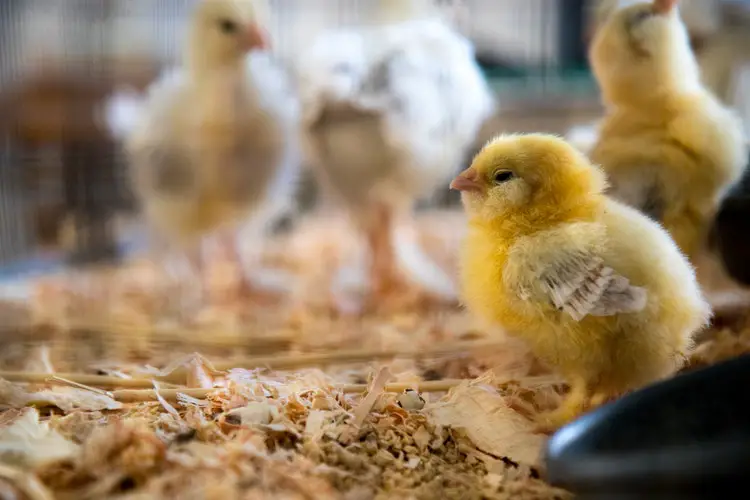Raising chicks can be a rewarding experience, but it also comes with its own set of challenges. One of the most common issues new chick owners face is dealing with stressed chicks in the brooder. Understanding the reasons behind their anxiety and learning how to effectively calm them is crucial for their healthy development. This article will explore various methods for calming stressed chicks in brooder environments, ensuring your chicks grow into healthy and happy hens.

Understanding Chick Stress
Chicks are sensitive creatures, and several factors can contribute to their stress levels. Environmental changes, overcrowding, temperature fluctuations, and even diet can play a role in chick anxiety. Recognizing these stressors is the first step in creating a calm environment.
Environmental Factors
In a brooder, environmental factors such as temperature, humidity, and lighting are crucial. Chicks require specific conditions to thrive, and any deviation can lead to stress. Ensure the brooder is set up correctly by visiting small chick brooder designs for detailed guidance.
Proper Brooder Setup
The setup of your brooder can significantly impact your chicks’ well-being. Make sure to use appropriate bedding, provide adequate space, and maintain cleanliness. For more on bedding options, consider paper towels for chick brooder as an effective solution.
Temperature Control
One of the most critical aspects of a brooder is temperature control. Chicks need warmth to grow, but too much heat can be just as harmful as too little. Gradually reduce the temperature as they grow to mimic natural conditions. For more information on maintaining a stable temperature, check out this external guide on brooder essentials.
Humidity Levels
Maintaining the right humidity levels is another factor in keeping your chicks stress-free. Too much humidity can lead to mold and respiratory issues, while too little can cause dehydration. Use a hygrometer to monitor and adjust the levels as needed.
Feeding and Nutrition
Proper nutrition plays a vital role in reducing chick stress. Ensure your chicks have access to fresh water and a balanced diet. Explore how to keep feed dry in brooder to prevent feed from becoming a source of stress.
Introducing Supplements
Vitamins and probiotics can help boost the chicks’ immune systems and reduce stress. Consider adding these to their diet to promote overall health and well-being.
Socialization and Space
Chicks are social animals and require interaction with their flock. Providing enough space for them to move around and interact is essential for their mental health. Overcrowding can lead to aggressive behavior and increased stress levels.
Creating a Safe Environment
Ensure that your brooder is safe from predators and other potential threats. A secure environment allows chicks to explore and play without fear, contributing to their emotional well-being.
Cleaning and Maintenance
Regular cleaning of the brooder is necessary to prevent illness and stress. Soiled bedding and food can quickly become breeding grounds for bacteria, leading to health issues. Learn how often to change brooder bedding to maintain cleanliness.
Using Eco-Friendly Products
Consider using eco-friendly products for cleaning and maintenance. These are safer for your chicks and better for the environment. Discover more about eco-friendly chick brooder options.
Monitoring and Observation
Regularly observing your chicks’ behavior can help you identify stress early. Look for signs such as excessive peeping, feather pecking, or lethargy. Addressing these signs promptly can prevent further stress and health complications.
Keeping a Journal
Keeping a journal of your observations can help you track your chicks’ development and identify patterns in their behavior. This information can be invaluable in making adjustments to their care as needed.

FAQs
How can I tell if my chicks are stressed?
Look for signs such as excessive noise, feather pecking, or lack of appetite. These can indicate stress or discomfort.
What is the ideal temperature for a chick brooder?
The ideal temperature starts at 95F in the first week and decreases by 5F each week until it reaches room temperature.
How often should I clean the brooder?
It’s recommended to clean the brooder at least once a week or more frequently if it becomes soiled.
This article contains affiliate links. We may earn a commission at no extra cost to you.











